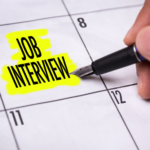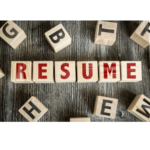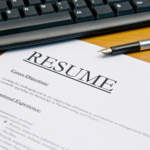Attention all 2021 job interview candidates: This year,preparing for an interview is unlike every year prior. The COVID-19 pandemic changed the job interview landscape, and while employment opportunities are rebounding in a major way, how people obtain these jobs has a different feel and process.
No, it’s not time to ditch your slacks for pajama bottoms, and yes, preparing for a virtual interview has a different feel and protocol, but through careful study of our clients and candidates, AMS Staffing has come up with these five, critical interview tips and tricks to remember when interviewing in 2021.
#1 Job Interview Preparation
If you landed an interview, congratulations! That means you are already qualified for the position. Your resume and cover letter have shown that you have the desired skills your potential employer seeks. So, how do you conduct interview preparation?
Research the company you are interviewing with
Don’t stop at the “About Us” page on the company’s website. Go deeper; look at their social media posts and blog articles. Have they been in the news? Click the “News” function in Google searches to see if there’s anything topical that you can arm yourself with prior to the interview.
Research the person you are interviewing with
No, it’s not creepy to look up a hiring manager on LinkedIn prior to an interview. In fact, employers expect candidates to conduct this research and are impressed when you do. However, don’t ask to connect until after a hiring decision has been made. Simply scan their profile to figure out where they’re from, where they’ve worked, and what organizations they support. Look for crossovers in their profile to your own life, and use that as conversation fodder to build rapport.
Review your own qualifications to determine which align with the job description
This interview technique is a great exercise to start your Q&A strategy, as you’ll be able to identify gaps in your experience, as well as strengths. You’ll want to be ready to address your gaps as well as opportunities for development.
Copy and paste the entire job description into a Word doc. Then, highlight each bullet point that matches your experience with the mouse. This way, you can see exactly which skills you can emphasize during your interview.
Come up with an achievement example
Think about what you do best. Think of a time in the past when you turned a setback into an achievement. This is your time to shine, so tell a story, and don’t just say, “I’m good with people.”
Also, if you’re worried about not sounding humble, a good interview tip is to use someone else’s compliment about you, as in “My boss said I was very compassionate when interacting with clients.”
Come up with a “conflict” example
Interviewers know that jobs aren’t always hunky-dory, so they want to know how you’ll handle conflict. You must come ready with an example, as this is a very popular question. Just make sure your story demonstrates how you helped resolve a conflict, not whether you won, lost or hated your last boss because of it.
#2 Control Your Conduct During the Job Interview

First and foremost, “dress the part!” If you’re participating in a virtual interview, then avoid awkward moments by dressing the same way you would if you were interviewing in-person.
The most fundamental of interview techniques is eye contact, and this still applies to virtual interviews. Above all, eye contact demonstrates that you’re listening. Set up your webcam ahead of time and make sure that your face is centered, your background isn’t too busy or unprofessional and your mic is working.
Speaking eloquently during an interview is the key to listening. You read that right. Eye contact is only half the battle, while asking follow up and clarifying questions demonstrates that you are listening and are a participant in the conversation. You should also bring up previously stated facts and stories.
Speaking eloquently during an interview is the key to listening. You read that right. Eye contact is only half the battle, while asking follow up and clarifying questions demonstrates that you are listening and are a participant in the conversation. You should also bring up previously stated facts and stories.
#3 Job Interview Questions to Ask
When conducting your preliminary research, use the information you find out about your future employer to generate a list of job interview questions. Remember, the interview goes both ways; you’re interviewing the company just as much as they’re interviewing you.
Here are a few questions you should prepare for your 2021 interviews:
How did COVID-19 impact your company? Some companies laid off staff, while others went fully remote. Either way, how they reacted speaks volumes about their corporate culture.
What is a key to your company’s success that an outsider wouldn’t learn about through an Internet search? If this is a tough question for your interviewer, then company culture or how they measure success may not be highly developed.
Which competitors are you most worried about and why? Companies should be thinking about the competition, and more importantly, how they differentiate themselves. You might want to visit their competitor’s websites yourself to assess how they differ.
What does a typical day in this position like? Think about what you expect or what you want your day to look like. This question will help you determine if this is what you truly want to do.
How will success for this position be measured? Success is crucial to job satisfaction, and you need to know if the performance indicators that the company measures are in line with your career goals.
How do you describe your company’s culture, mission and values? An interviewer should be excited to answer this question, and usually has a canned response ready to go. That’s why this next question is so imperative:
Is there anything I should know that I haven’t already asked about? THIS IS THE GOLDEN JOB INTERVIEW QUESTION! Your interviewer probably caught you off guard at some point, so now it’s time to turn the table. Employers are inclined to reveal more in response to this question, such as company dynamics, what resources are available and company and staff development. Always end your Q&A session with this question. You will be surprised by their answer, and it positions you as an ally to the interviewer.
#4 Amplify Your Strengths

Your interviewer has seen your technical skills on your resume, and if you highlighted bullets in the job description, you probably have a good idea of where your strengths lie in relation to the needs of the job. However, AMS Staffing believes in another interview tip: It’s important to think about your “soft skills,” such as interpersonal communication or your favorite character traits.
If you’re going to be working on a team, then communication and emotional intelligence will be highly valued. Just remember that showing is more powerful than telling, so be prepared with examples of how you demonstrated these “soft skills.”
#5 What to Do after Your Job Interview
You’ve made it through your interview, congratulations! Now that it’s over, what next?
This suggestion is an old interview tip, but still highly relevant in our post-COVID 19 world….say “thank you.”

In the past, candidates may have sent a handwritten letter. In today’s day and age, a “thank you” email is highly appropriate. For in-person interviews, ask for the business card of all those present, and for virtual interviews, don’t be afraid to ask for email addresses.
Timing is important, as you want to stay fresh in the interviewer’s mind when you show gratitude. If you had a morning interview, email all interviewers that afternoon, and if it was an afternoon interview, send your “thank you” email the following morning.
If you’ve done your research, prepared with questions, highlighted your strengths and acted accordingly then you’ll find success interviewing in 2021.
Use AMS Staffing to find the perfect job for you!






